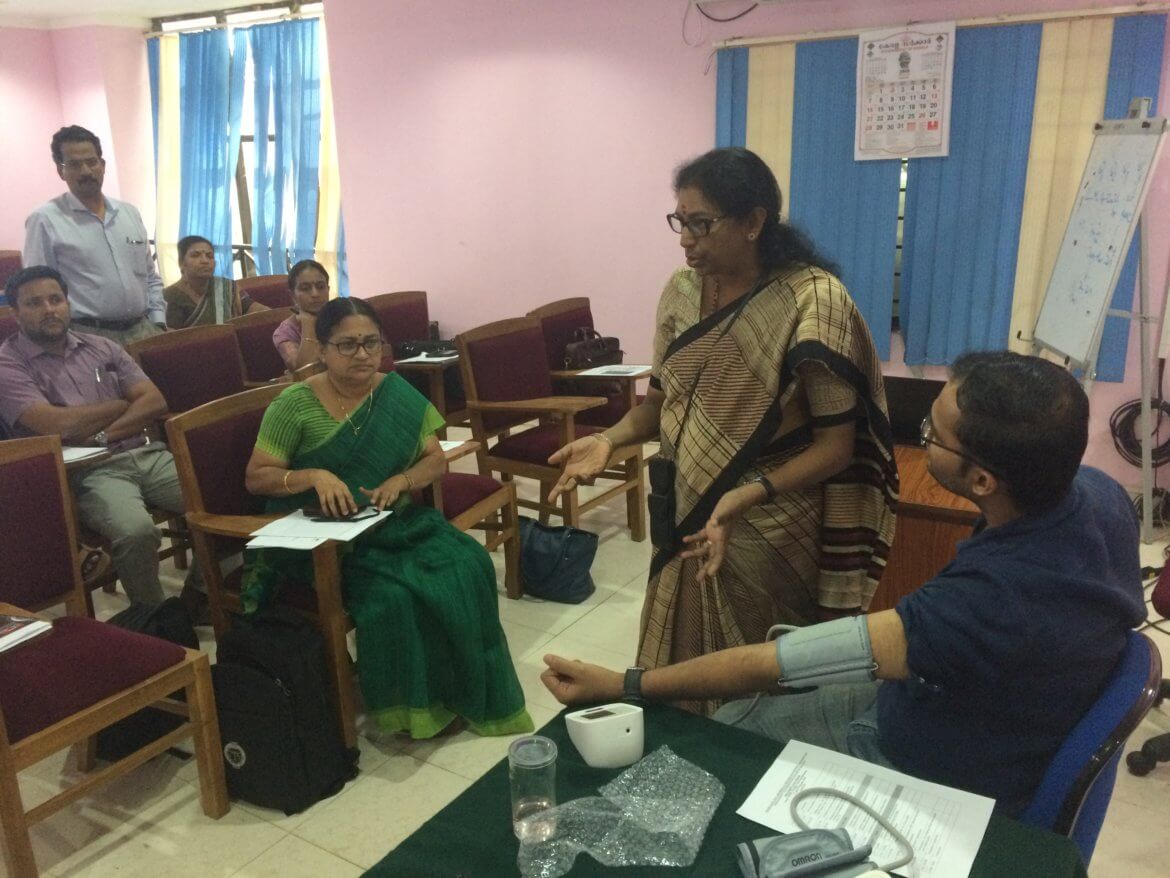The Government of Kerala, with technical assistance from iDSI, delivered a ‘training of trainers’ programme for 46 doctors and 57 nurses from six districts of Kerala, enabling them to train further healthcare staff across the State.
Also present were 12 clinicians and 18 staff nurses from the Alappuzha and Ernakulam districts, whose focus is on hypertension Quality Standards. The ‘training of trainers’ programme, conducted over four days this month in the state capital Thiruvananthapuram, saw doctors and staff nurses undergo training focused on: screening and diagnosis of hypertension; hypertension treatment protocols for Kerala; documentation; and good clinical practice in hypertension management.
This cohort of doctors and nurses will now use their updated skillset to train other healthcare professionals in their respective districts.

Attendees to the ‘train the trainers’ programme in hypertension Quality Standards
The State Government of Kerala initiative – Quality Standards project in the management of hypertension – will be implemented with technical assistance from iDSI, in the districts of Alappuzha and Ernakulam. The project aims to increase the detection of new cases of hypertension through opportunistic blood pressure (BP) screening of adults at primary care facilities (known as Family Health Centres); and achieve set BP targets through suitable management of hypertensive patients.
34 doctors and 39 nurses were from the Thiruvananthapuram, Thrissur, Kannur and Wayanad districts, where the India Hypertension Management Initiative, a collaborative project between the Indian Council of Medical Research, the Ministry of Health and Family Welfare, the State government, World Health Organization and Vital Strategies, is being implemented.
The training was imparted by Professors of Government Medical Colleges with the support of State non communicable diseases (NCDs) team, iDSI and other partner agencies, under the overall guidance of the Additional Chief Secretary from the Department of Health and Family Welfare.
Training sessions over the four days included:
- proposed strategies for screening and management of hypertension and Diabetes mellitus in Kerala
- approach, diagnosis, classification and complications of hypertension and diabetes mellitus
- algorithms for hypertension and diabetes mellitus management
- registers, patient cards and reporting forms
- e-health system of Kerala, to improve upon the collection of data and achieving the hypertension quality standards
- use of a glucometer for screening and diagnosis of diabetes mellitus
- using various types of BP apparatus for proper measurement of BP
- group discussion and presentation on the registers, cards and forms used for documentation
Kerala is one of the Indian states undergoing rapid epidemiological transition with a high prevalence of NCDs, particularly hypertension and diabetes mellitus. Although Kerala has managed to increase detection and management through primary care as part of a NCD control programme, one of its priorities is to improve the quality of management of NCDs through the primary care system.
Read previous iDSI blog posts on improving hypertension detection and control in Kerala here (December 2017) and here (April 2017).
